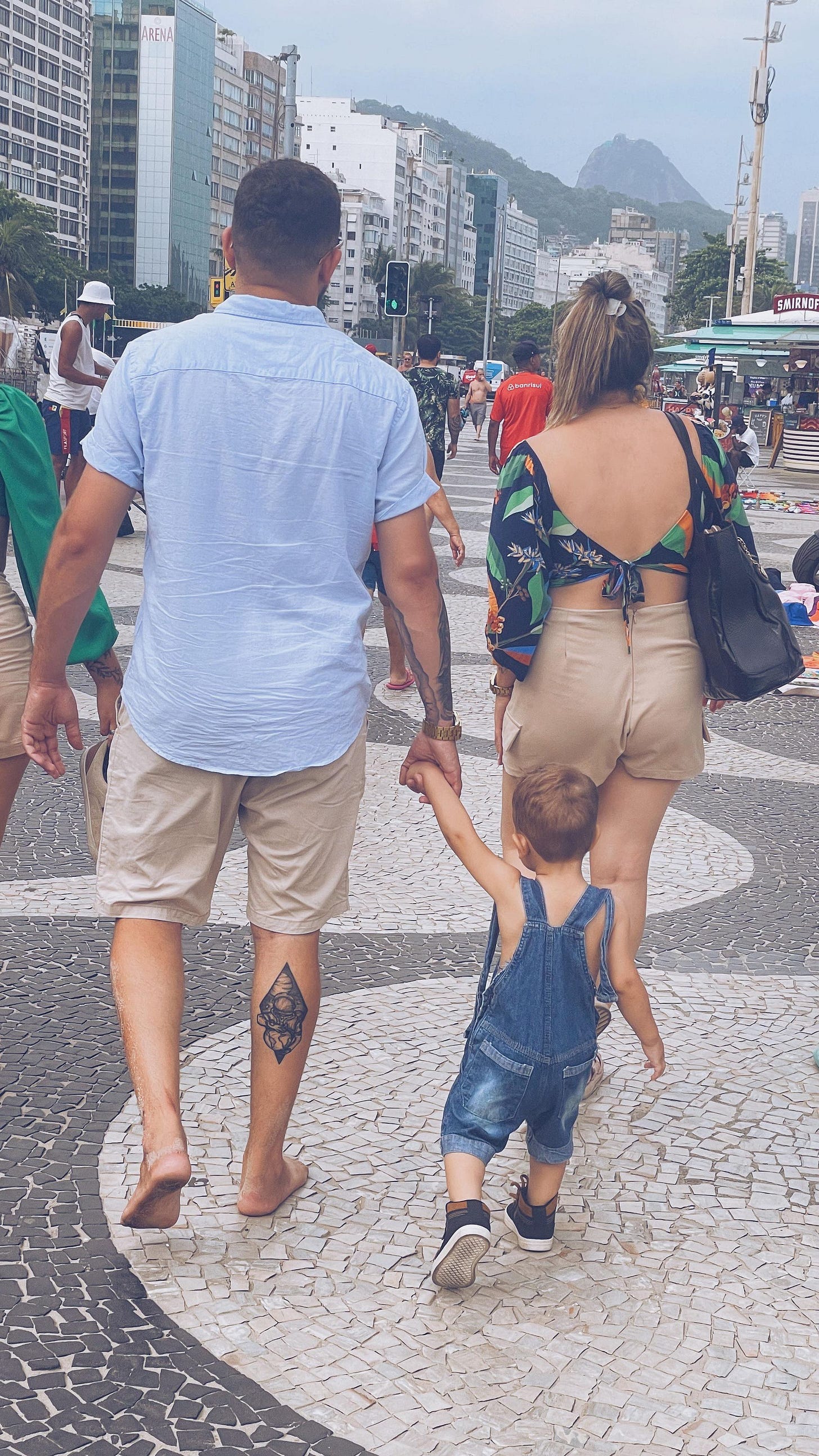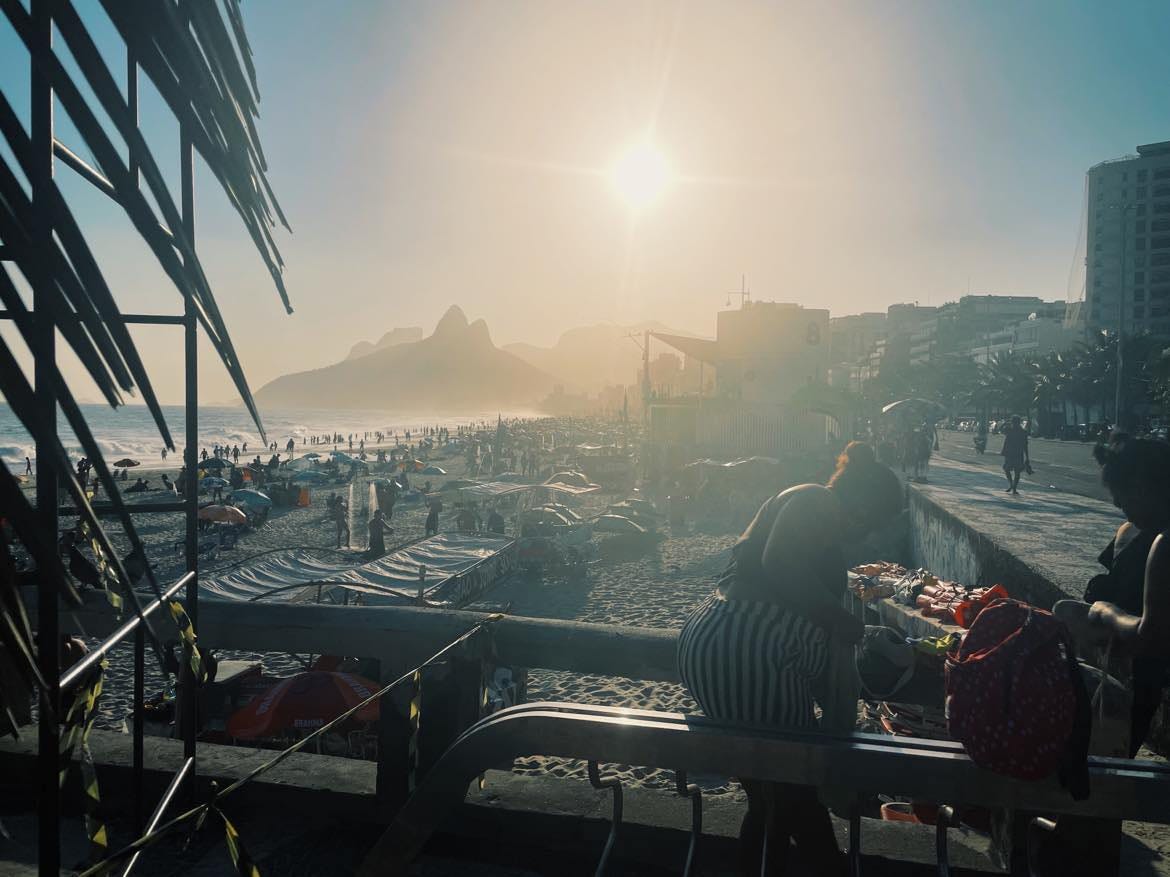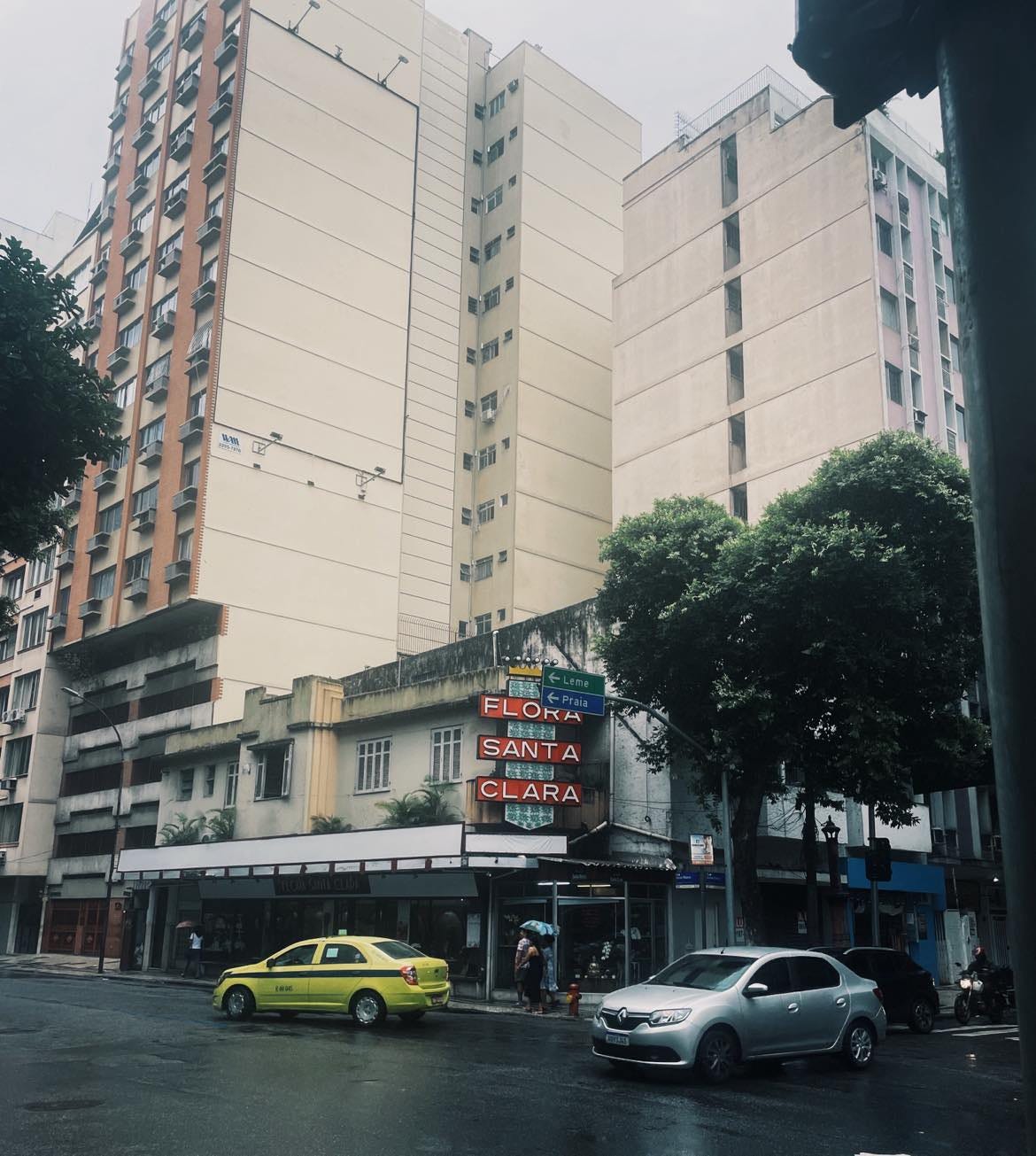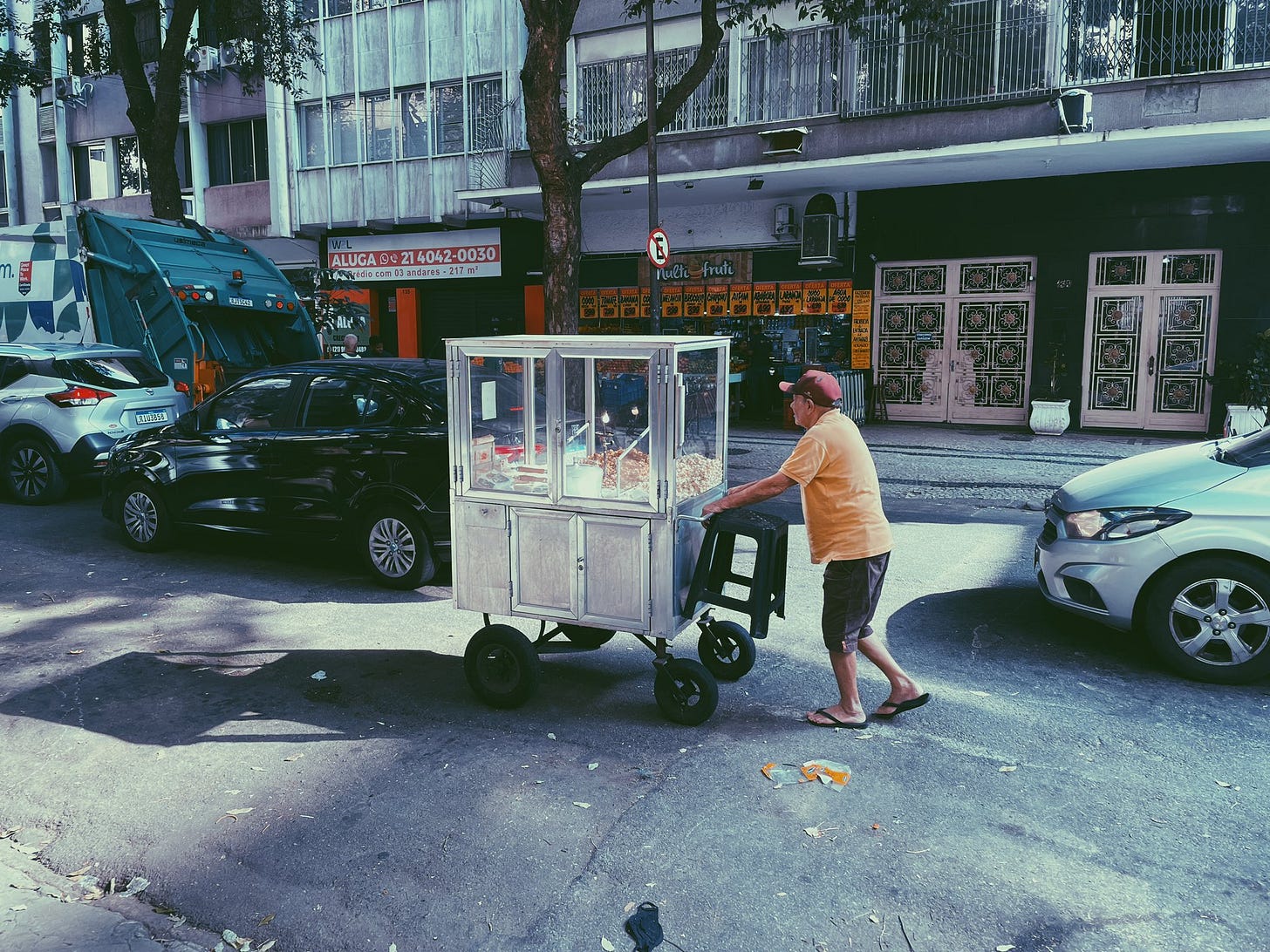☕ saturday mornings - september 30, 2023
recognition, love vs grief & notes on rio de janeiro
Happy Saturday!
I hope you’re having a lovely start to your weekend.
What I’ve been up to:
I've spent the past week writing, working, and exploring Rio de Janeiro with my brother. We went to a Brazilian steakhouse, hung out with monkeys in a park, wandered through stunning botanical gardens, had a traditional feijoada lunch, toured downtown, took a cable car to the top of Sugarloaf Mountain, dove under crashing waves in the Atlantic ocean, and saw the iconic Christ the Redeemer statue. It’s been strange integrating work with travel but figuring it out as I go!
In the evenings, I've spent more time than I'd care to admit making Pinterest boards for aesthetic home design. Super fun. I'm slowly recovering a visual sensitivity I haven't kindled since I was a child.
Today, we're packing up and heading to the airport to fly to Buenos Aires where I'll be spending all of October. Write of Passage starts Monday and I'm fired up.
Here are the most interesting ideas I've explored this week.
✍️ quote i’m pondering:
U.S. President Harry Truman on the risks of recognition:
"It is amazing what you can accomplish if you do not care who gets the credit."
📚 book passage i loved:
“The world is indeed full of peril, and in it there are many dark places;
but still there is much that is fair, and though in all lands love is now mingled with grief, it grows perhaps the greater.”
― The Fellowship of the Ring by J.R.R. Tolkien
💡 idea from me: notes on rio de janeiro
I've spent the past 10 days in Rio which is the most time I've spent in any city outside of Canada (besides when I lived in Porto for three weeks or Pamplona for four months).
Here are my notes:
Safety.
For most of my adult life, up until about two months ago, I believed Rio was an extremely dangerous city. Like a "drug trafficking get shot in the street don't even bother thinking about visiting" city.
It continues to amaze me how little I know about the world, yet how much I default assume/pretend to know. (Aside: I had the same thought looking at the biodiversity of wild cactuses in the botanical gardens. So much of the world remains a mystery.)
Like any city, there are parts you don't want to visit, especially at night, and I'm more cautious here than I would be in Toronto. But overall it has felt very safe.
There is an evident police presence. I counted at least four different police forces. Policemen patrolling every few blocks (but mostly scrolling on their smartphones).
The biggest risk to tourists is having your iPhone snatched if you're flailing it around on a busy beach boardwalk. Of course, the simple solution is to not flail your iPhone around on a busy beach boardwalk.
If you read the travel advisory or watch the news, with "high crime rates and regular incidents of violence," you'd think Rio is a violent battleground (I got scared again reading it) when it’s actually a pretty well-off city. A lot of good, normal people just going about their lives.
Although important warnings, these information sources take a seed of danger and plant it into a garden of fear.
It’s a bit sad. If we're led to believe the world outside our front door is a violent and dangerous place, we shut our blinds and stay inside. We begin to believe human nature is violent and dangerous and the earth is a hellish landscape and we're not far from descending into fiery Armageddon.
The only place that seems safe is our home, because we know it through experience, while everywhere else seems dangerous, because we're told it is.
In general, I think we're ruled far less by objective facts and far more by cultural narratives than we care to admit.
Hesitant to conflate safety with general kindness, people here have been kinder and warmer and friendlier than almost any city I've visited. From our first Uber driver joking about Canada being "muy frío," to a grocery store cashier (with excellent English) noting what a beautiful country Canada is and how he'd like to visit Montreal one day, to Pedro at the gym letting us workout the first time for free, to the doorman in our building who always says good morning.
No matter where you go, I’ve found people are just people. Everywhere in the world people laugh, dance, drink, move their bodies, eat good food, tell stories, express love. Seeing this across cultures makes you appreciate it more.
Beach Culture.
If you pay attention, most cities whisper a subtle message. Rio whispers: Go to the beach.
Rio's beaches are the hub of social life when people aren't working and, because the beaches are always busy, it seems like people are never working.
I see the influence of "beach culture" everywhere. From the clothing to the beach body aesthetics and tanned golden skin, down to how storefronts are designed to be open with outdoor seating so patrons can visit sandy and partially clothed.
The wealthiest (and safest) neighborhoods are all along the beach and real estate prices are the highest because everyone wants to live there. It's a sign of prestige. While the favelas (the poverty-stricken and dangerous housing areas) are secluded up in the steep mountains.
There's even a fairly strict beach etiquette: what to bring to sit on (not towels), what to wear, what to drink.
On Sunday, I took the subway into the city. Our train was empty but the one heading to the beach was packed like a can of sardines. The downtown core was an eerie ghost town. Everyone had left the city and gone to the beach.
In Rio's main cathedral, during service, attendance was scarce.
As DFW wrote: There is no such thing as not worshipping. Everybody worships. The only choice we get is what to worship.
Here, people seem to worship at the beach.
Architecture.
The most startling difference in Rio versus European cities I've visited: the lack of a sense of history. It doesn't feel old, but it also doesn't feel modern. Somewhere in the middle. There aren't many old buildings and hardly any (noticeable) churches.
Most of the original colonial buildings have been knocked down and replaced by taller apartment buildings, which are currently being knocked down and replaced by more modern apartment buildings.
In places trying to improve the standard of living and catch up to the modern world, an emphasis on history often falls by the wayside. People are careening towards the future, not reminiscing about the past. As Maslow tells us, survival cares little for actualization.
My tagline for Rio de Janeiro would be: If you love the beach, you'll love it here.
❓ question i’m asking:
What’s the most beautiful life I can imagine for myself?
Am I making the decisions that would get me there?
📸 photo of the week:
My best photo from last week. I shared my best four photos as well as my approach to learning photography as a beginner on Twitter.
Thank you for reading! It means a lot to me :)
1- Leave a Like. If you enjoyed this, please click the little ❤️ below. It’ll help other people find this post.
2- Spread the Love. If you want to support my work, the best way to do so is by sharing it with others who would enjoy it.
3- Get in Touch. If my writing resonated or if you just want to be friends, please reach out. Reply to this email, leave a comment, or find me on Twitter! I respond to everyone.
Much love,
Tommy







Awesome Catalina. I’ll make sure I’ll add it to my list. Thanks for the recommendation :)
Big fan of beautiful architecture and pastries - both together sound lovely.
So true about the fear narrative, Tommy. States control through fear, and media is the medium. You are so right - people are generally kind, helpful and giving. Believing that (and actually experiencing it) is your first step to travel freedom.